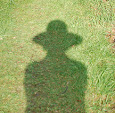This week there has been television coverage of the melting of the Arctic ice cap highlighting the fact that a navigable waterway - historically thought to connect the Atlantic and Pacific Oceans - is now opening up.
Search for 'The Northwest Passage' led many countries to send out ships which charted the North American coast. In the late 18th century, Captain George Vancouver was directed by the British government to search for it and also collect information about the fur trade.
Vancouver's most famous voyage was the 1791-1795 expedition to explore the west coast of North America. It is in this particular area (where Vancouver spent several years) we spent 5 days aboard a landing craft called the M. V. Aurora Explorer.
The organisation who run this trip have a comprehensive website here.
Search for 'The Northwest Passage' led many countries to send out ships which charted the North American coast. In the late 18th century, Captain George Vancouver was directed by the British government to search for it and also collect information about the fur trade.
Vancouver's most famous voyage was the 1791-1795 expedition to explore the west coast of North America. It is in this particular area (where Vancouver spent several years) we spent 5 days aboard a landing craft called the M. V. Aurora Explorer.
The organisation who run this trip have a comprehensive website here.

This is the vessel. She is a working commerical barge carrying 5 crew and 12 passengers.
 And this is the geography:
And this is the geography:
 From 1792 to 1794 Vancouver and his men spent three summers on the coast. While their ship, the Discovery, waited offshore, they used smaller rowboats to look into every cove and inlet. Detailed surveys were done in these small boats then a composite map was put together. And, as the rocks don't move, it has been shown that these early charts were very well done!
From 1792 to 1794 Vancouver and his men spent three summers on the coast. While their ship, the Discovery, waited offshore, they used smaller rowboats to look into every cove and inlet. Detailed surveys were done in these small boats then a composite map was put together. And, as the rocks don't move, it has been shown that these early charts were very well done!Here is an interactive site of Vancouver's exploration which was done for this year's 250th anniversary. (Apparently, it is 250 years since the birth of Captain George Vancouver, in England.)
Vancouver's surveys proved, once and for all, that the 'Northwest Passage' did not exist within the vast extent of coastline he had examined. However, in the process he named around 400 Pacific Northwest landmarks. He also strengthened British claims to the territory and left behind detailed records of the coastline for later navigators.
Finally, it was on the basis of Vancouver's work that the claim to the Northwest Coast as a British Possession was based.




No comments:
Post a Comment